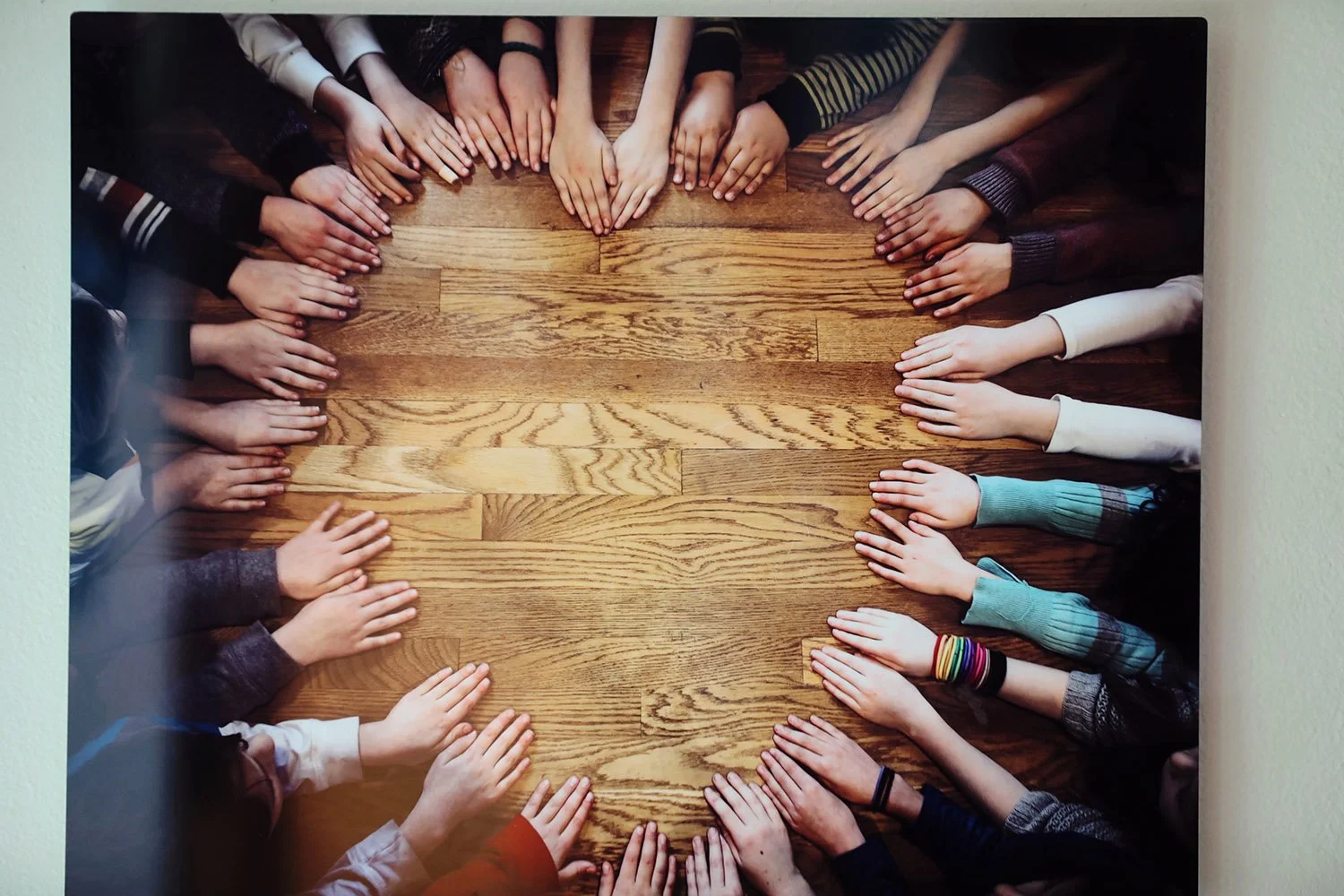To learn more about Whidbey Island Waldorf School or come for a tour or a walk through the Grades, please reach out through the button below.
Inspirations
A brief excerpt from a longer Rumination by Elan Leibner of April 5, 2020, from his website: elanleibner.com
“In a healthy life of soul, between activity (thinking, feeling, and acting) and rest, there is boredom. Boredom, good boredom, generates a vortex in the soul, inviting imagination.”
I would like to dwell mainly on relationships today, especially in connection with the question of rhythm. Relationships really ARE rhythm, and rhythm really is a relationship between, at the very least, two elements: ebb and flow. But the secret of healthy rhythms is that there is always a third element. In the rhythm of night and day we have the dawn and dusk; in the rhythm of quiet breath at night, there is a moment of rest after the exhalation; in healthy farming there is the fallow year; in conversation there is silence.
In a healthy life of soul, between activity (thinking, feeling, and acting) and rest, there is boredom. Boredom, good boredom, generates a vortex in the soul, inviting imagination.
Among the many forms of harm that humanity has inflicted upon itself through the creation of the wired and wireless world, the disappearance of good boredom is one of the most consequential. Sure, we get bored today, on occasion, when every streaming option from Netflix to YouTube, email, text, and computer games have been tried and ruefully discarded. But it is a nervous, exhausted, depleted kind of boredom. Good, effective boredom is peaceful, even if there is almost always a tinge of guilt that comes along with it.
In the absence of boredom, the new beginnings we generate run the risk of being derivative. To borrow from the musical world: we don’t generate new themes, only variations. In spiritual practice as Rudolf Steiner describes it there is the moment when the mind, fully awake, relinquishes the image or understanding that has been built with great effort, only to face the complete absence of everything: no light, no image, no sound, only a great void. If in the course of preparation sufficient forces have been created, those forces now stream out from one’s soul and slowly illuminate the spiritual beings that surround us all the time. From them, genuinely new beginnings can be made on earth. We can even employ those beginnings in the service of others.
“American Tibetan Buddhist, Pema Chödrön tells us: “The truth is that things don’t really get solved. They come together and they fall apart. The healing comes from letting there be room for all of this to happen.” ”
This is an excerpt from a Waldorf Education blog by Rebecca Moskowitz from the Association of Waldorf Schools of North America website.
We are emerging from a time in history when many of our daily life activities have been dictated by urgency and crises. As we begin to see an end to necessity driving this certain way of being, it becomes all the more important for us to slow down and engage in inner work for the children in our schools, for our colleagues, and for ourselves.
Rudolf Steiner believed inner work was an essential practice for those guiding children to reach their full potential. He stated, “You will not be good teachers if you focus only on what you do and not upon who you are.”
For the soul, or the mind if one prefers, try a balance of thought and an acceptance of uncertainty. American Tibetan Buddhist, Pema Chödrön tells us: "The truth is that things don’t really get solved. They come together and they fall apart. The healing comes from letting there be room for all of this to happen."
Time in nature is a fruitful way to feel a connection to all things. We can work outdoors, hike, and exercise, or even just sit and observe if the weather allows. As Steiner said, “You can get an idea of human nature only when you can see the relationship of the individual human being to the whole cosmos.”
Do as our early childhood teachers do. Have activities that breathe in – purposeful, productive, industrious – and then activities that breathe out – relaxing, still, and observational. In this way we can seek to bring balance and routine to our daily lives.
. . . If we make time to reflect on the world’s abundance, we can see what we are fortunate to have in life already. These moments not only help with appreciation of what we have, but also broaden our perspective of all that exists in the vast expanding universe.

